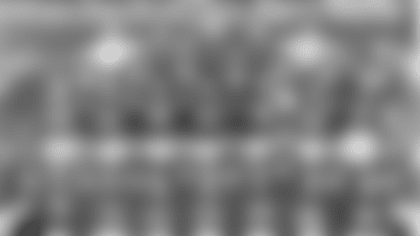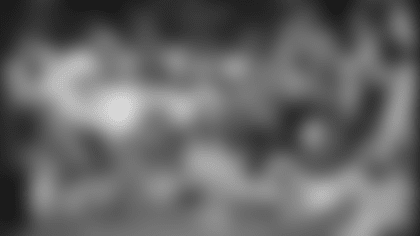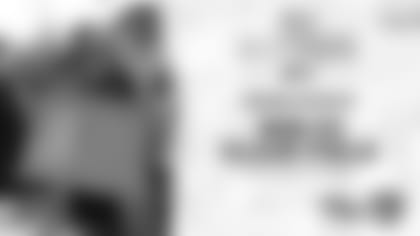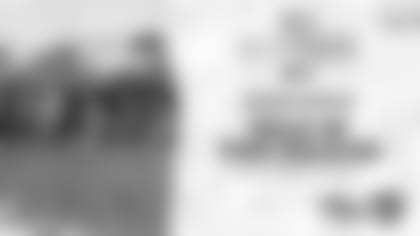"75 for 75" is an article series from the 49ers Museum highlighting legendary moments in 49ers history as part of the team's 75th Anniversary celebrations in 2021.
--
January 10, 1982
Dwight Clark's game-winning touchdown catch to beat Dallas at the 1981 NFC Championship game is an iconic moment in 49ers history. Nevertheless, Clark was always quick to share the glory. He also knew several critical plays were needed to bring San Francisco its first NFC title.
"Joe (Montana) likes to tell me that play should have been called 'The Throw' not 'The Catch,'" Clark said with a laugh during a 2013 interview.
Indeed, most fans recall Montana's accurate throw and Clark's athletic leap and catch to win the game. Before that occurred, the drive to the end zone started at the 49ers 11 yard line and included a series of critical plays. Lenvil Elliott, a seldom-used running back, picked up 31 yards on four carries. He did it behind the key blocks of guard John Ayers, who provided interference on a pair of Elliott's sweeps.
Then, facing third down on the Cowboys 6 yard line, and trailing 27-21, Bill Walsh calmly called for a timeout. On the sideline he told quarterback Joe Montana to run "Sprint Right Option." It was a play practiced over and over during 49ers training camp in Rocklin, Calif. As usual, Freddie Solomon would be the primary receiver, but Walsh instructed Montana to look in Clark's direction if Solomon was covered. As Montana ran back to the huddle, Walsh told him to throw the ball away if neither man was open.
At the snap, Solomon sprinted off the line of scrimmage and slipped to the ground. Montana spotted Solomon's mishap and quickly rolled right, pursued by a pair of Cowboys defenders. Then he heaved a pass toward the back of the end zone that seemed uncatchable. Clark soared impossibly high into the darkening sky to make a fingertip grab and change the fate of the franchise.
"The best part of that play, when you watch the film, is Bill's reaction," Clark said. "Everyone is going nuts on the sideline and Bill calmly takes off his headset and walks to the other end of the bench. He shows almost no emotion. It was not a surprise to him that we scored on that play."
Still, the game did not end with "The Catch." A capacity crowd at Candlestick Park held its collective breath as kicker Ray Wersching trotted onto the field. Long-time 49ers fans recalled the bad mojo that inevitably seemed to follow the 49ers in playoff games against Dallas. Wersching put that thought to rest when he converted the extra point that gave San Francisco a 28-27 lead.
Then the defense stepped in to save the day.
After the ensuing kickoff, the Cowboys had 50 seconds to march into game-winning field goal range. On the first play from scrimmage, Dallas quarterback Danny White connected with Drew Pearson on a deep crossing route. A one-armed tackle by 49ers defensive back Eric Wright kept Pearson from sailing into the end zone.
With 38 seconds remaining, the Cowboys needed 10 more yards before taking a shot at the field goal. On the next play, 49ers defensive lineman Lawrence Pillers stormed into the Dallas backfield, sacked White and forced a fumble. Defensive end Jim Stuckey smothered the football. Candlestick Park erupted.
As Clark often attested, it took more than "The Catch" to catapult the 49ers to their first Super Bowl. They also needed the throw, the kick, the one-armed tackle, the sack and the fumble recovery to help launch one of the great dynasties in NFL history.














